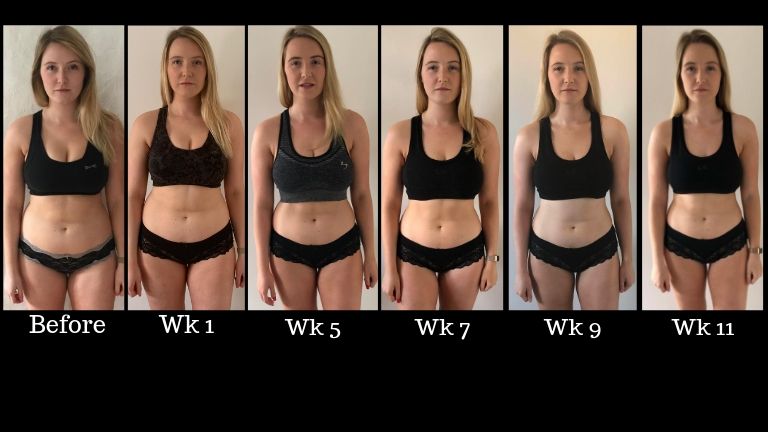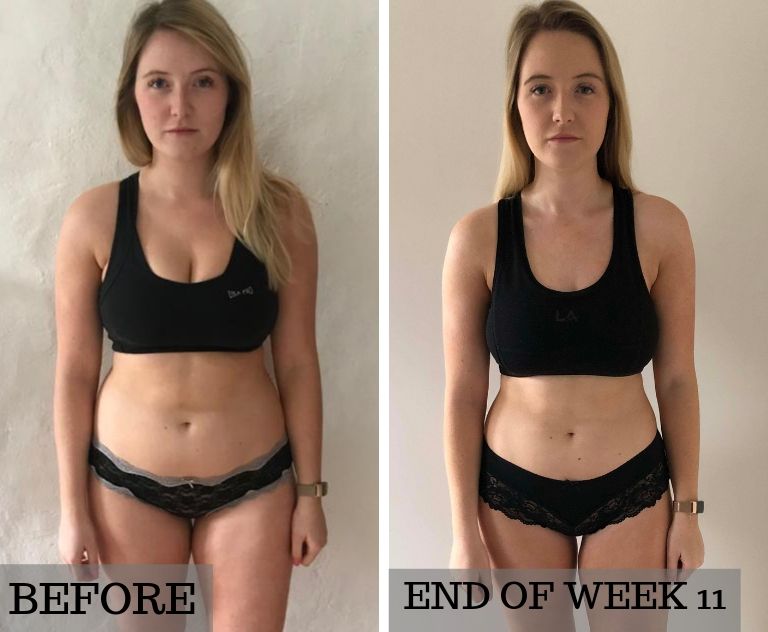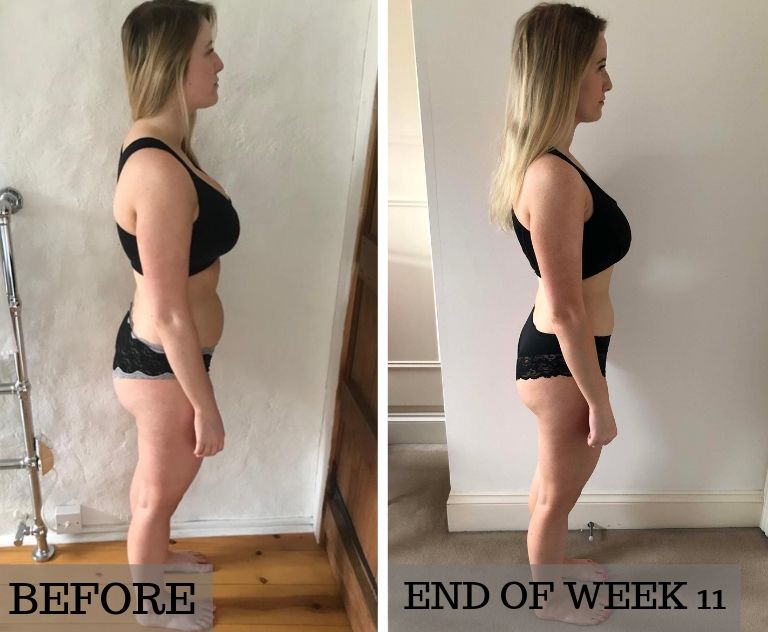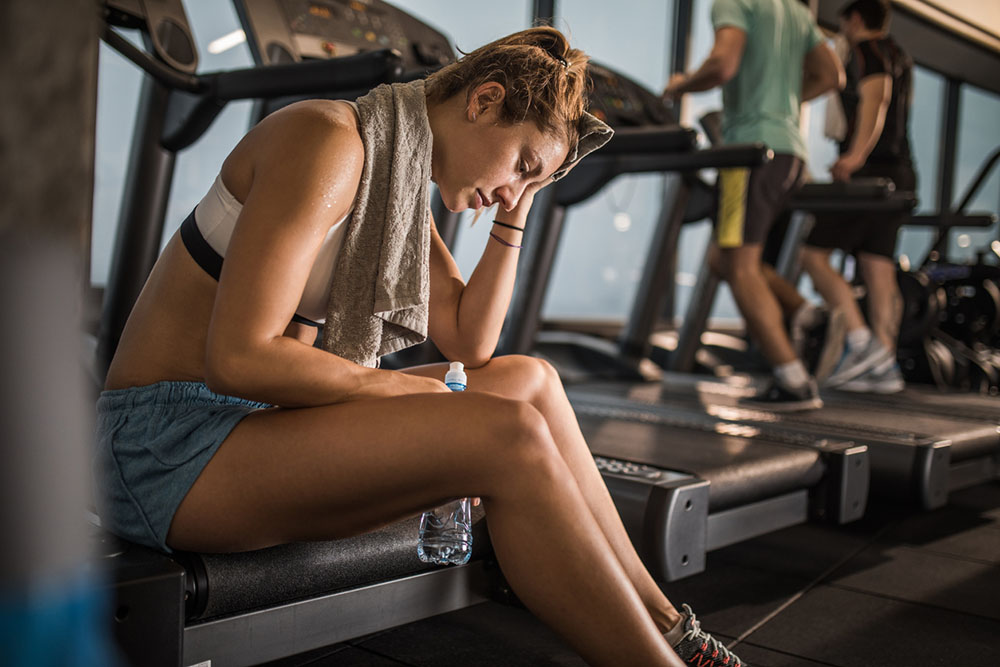Healthista’s Olivia Hartland-Robbins is on week eleven of her body transformation at Transition Zone gym and she has lost 6kg and is down to 20.5 percent body fat
It’s the penultimate despatch from my 12 week transformation journey (what are you going to do without me?) and I have seriously upped my game in both fitness and diet.
I have been having two training sessions with Transition Zone personal trainer Mark Stanton (Instagram: @insidetrack_pt) as well as doing two classes a week (TRX and boxing).
Transition Zone nutritionist Emma Bardwell (Instagram: @emma.bardwell) has increased my protein intake to 100 grams on training days and 90 grams on non-workout days, so that my muscles have enough fuel, I have more energy and that I don’t get too hungry.
Take a look at my most recent measurements. I have now lost a total of 6kg (around 13 pounds) and 6.6 percent body fat – I am so proud of myself. It hasn’t been easy but it hasn’t been as hard as I thought it would be (but that’s because I thought it was impossible).
| Before | Week 1 | Week 2 | Week 3 | Week 4 | Week 5 | Week 6 | Week 7 | Week 8 | Week 9 | Week 10 | Week 11 | |
| Weigh kg | 68.9 | 67.4 | 66.3 | 65.5 | 64.8 | 64.8 | 64.5 | 63.8 | 63.2 | 63.4 | 64.4 | 62.9 |
| Body Fat % | 27.0 | 25.8 | 24.2 | 24.6 | 23.2 | 22.8 | 22.4 | 23.1 | 22.7 | 21.9 | 21.1 | 20.4 |
| Hips cm | 107 | 107 | 104 | 105 | 104 | 104 | 104 | 102 | 101 | 100 | 103 | 100 |
| Waist cm | 77 | 75 | 74 | 73 | 71.5 | 71 | 71 | 72 | 70 | 70 | 72.5 | 71.5 |
| Stomach cm | 90 | 88 | 86 | 86 | 84 | 83 | 84 | 84 | 83 | 80 | 82 | 82 |
| Thighs cm | 56 | 55 | 54 | 55 | 54 | 54 | 54 | 54 | 54 | 54 | 54 | 54 |
| Overall Weight Loss kg | N/A | 1.5 | 2.6 | 3.4 | 4.1 | 4.1 | 4.4 | 5.1 | 5.7 | 5.5 | 4.5 | 6.0 |
Read more about my transformation journey so far:
Week one: Body transformation week one – operation FAT LOSS,
Week 2: Body transformation week two – 8 diet rules to live by,
Week 3: Body transformation week 3 – how to get results from the gym,
Week 4: Body transformation week 4 – How to do cardio for weight loss,
Week 5: Exactly what to eat to lose weight – Body Transformation Week 5,
Week 6: Body Transformation week six – 10 sneaky ways to lose weight on holiday,
Week 7: Hit a plateau? This is how to get motivated – Body Transformation Week 7,
Week 8: Body transformation week 8 – The ONLY gym moves you need for serious fat loss
Week 9: These are the best foods to eat if you want to lose weight – Body transformation Week 9
Week 10: 4 hormones that help you lose weight from exercise – Body Transformation Week 10
I have been reflecting on past diets and fitness regimes, and I can’t believe that all along it could have been this simple: find a great gym and PT, learn to lift weights, speak to a nutritionist who will teach you all about healthy and wholesome foods and results will happen.
Why on earth has it taken me this long to figure it out? Hindsight is a wonderful thing and you do learn from your mistakes but I want to share a few weight-loss misdemeanours I have made constantly before embarking on this journey, in the hope that you don’t make the same ones.
#1 You aren’t eating enough
We’re all guilty of starving ourselves when we have gone to put on a pair of jeans and they ‘all of a sudden’ won’t do up. We skip breakfast, we live on soup, steer clear of the biscuit tin and book into ten fitness classes in ten days.
This has wrong written all over it (except for steering clear of the biscuit tin). In order to work out effectively at the gym you need energy and you can only get that by eating a diet of healthy food.
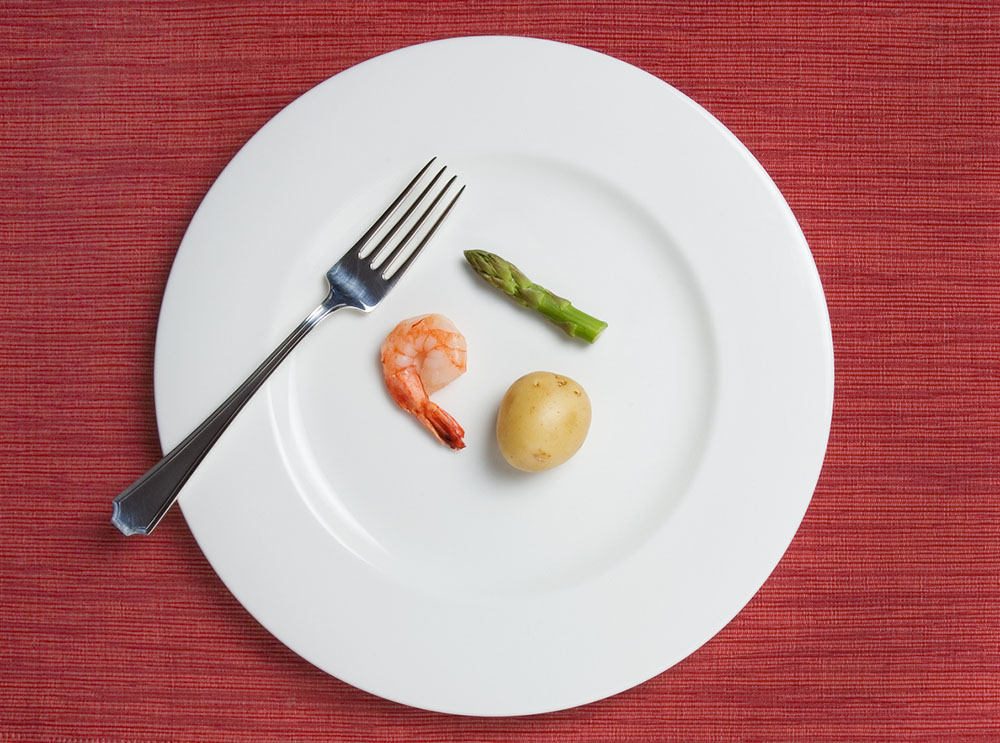
On workout days, Transition Zone nutritionist Emma Bardwell suggested that I eat 1,600 calories per day with 90 grams of protein (380 calories). And on non-workout days Emma suggested I eat 1,500 calories including 80 grams of protein (330 calories).
These food targets were based on my body measurements and basal metabolic rate (BMR), that’s the number of calories I burn at rest, and so may not be suitable for everyone, but they give you a guideline.
There is only a 100 calorie difference but after working out my BMR, Emma said I would still be in calorie deficit – which is needed for weight loss. A calorie deficit is simply burning more calories than you consume.
In the past I have restricted my daily calories to 1200 but most times I aimed and felt proud of myself if I ate below 1000 calories a day. This was totally unsustainable and I would end up bingeing on rubbish food later in the same week.
Studies on very low-calorie diets that provide less than 1,000 calories per day have shown that they can lead to muscle loss and significantly slow down metabolism. Why did nobody tell me this? So, don’t starve yourself, you will only do more harm than good.
#2 You’re focusing too much on body image
I won’t lecture you on body positivity, because that would make me a hypocrite. I am continuously hard on myself about the way I look, and everyday I think how much better my life would be if I was thinner or had slimmer thighs. But I guess there is always something people wish they could change to get to their body goals.
But what I have come to terms with is that I no longer want to look a certain way. I am five foot four, and I will never be slim. I also have quite muscly legs so I will never have the slimmer thighs I dream of. And that’s OK.
If you are going to the gym and eating healthy just so you can look good, I promise you will not keep it up. Focus on being as healthy as you possibly can, and eventually your body will look as healthy as it possibly can too – make that your new body (life) goal.
#3 You aren’t lifting weights
‘Weight training is ideal when wanting to transform the body because you can control the variables of how you stimulate the muscles. This is what causes the body shape to change and encourages fat loss, while also burning calories,’ says Mark.
The fact is, resistance training or lifting weights is incredibly important if weight loss is your goal. I used to think that spending one hour on the treadmill would get me the body I wanted (er, no). This made me miserable and it never felt worth it.
But spending just 20 minutes lifting some heavy weights causes you to be just as breathless, but without feeling like you are literally dying and can’t breathe. Plus, the more muscles you have the more calories you burn – bonus. The weights you use can be dumbbells, a squat rack, machines or your own body weight. Weight is weight, lift it and you’re good.
https://www.instagram.com/p/BzIMCVgHqdi/
Studies prove that lifting weights is one of the most effective exercise strategies for gaining muscle and increasing your metabolic rate (that means you lose weight faster). Lifting will also improve overall body composition and boost belly fat loss (which is what we all want right?)
The body responds better when we challenge ourselves. If you know you can squat 15kg and it isn’t a struggle, try increasing the weight. Challenge yourself and you will definitely see a change in your body.
https://www.instagram.com/p/BzIOVFyH8e6/
#4 You keep going on fad diets
We have all been there. You put yourself on a strict diet and start killing yourself at the gym. Obviously you’re going to lose weight, but is that a sustainable way of living? Ummm, no.
You get sick and tired of depriving yourself, and bored of being achy 24/7. So you give up on the gym and start eating all your favourite foods again (possibly even more than before). This often means that people end up gaining all their weight back and even putting slightly more weight on than before.
Then you go on another diet, lose again, stop and go a little higher in weight yet again. It’s a vicious cycle. Trust me, I know and I’ve been there.
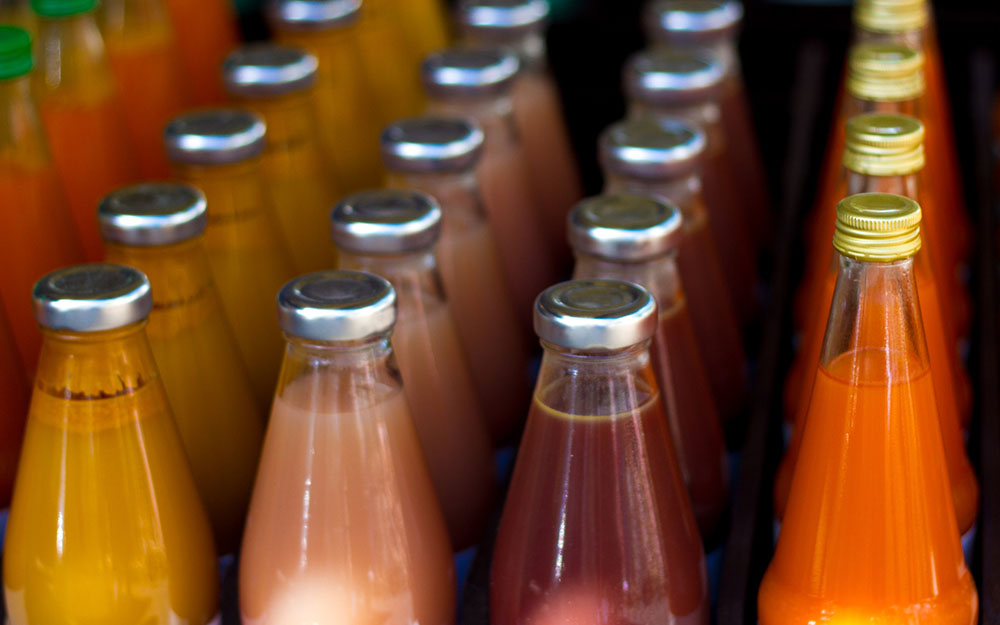
In fact, let me tell you about some of the crazy diets I have been on (don’t try this at home).
The maple syrup diet: which involved me drinking ten glasses a day of water, lemon juice, maple syrup and cayenne pepper, oh and this is all you are allowed for ten days. I nearly fainted when walking down the stairs – ridiculous. I lost ten pounds and then gained 14.
Then there’s juice fasting – I once went twelve days with no food and just juice. TWELVE DAYS! I was miserable. I lost 11 pounds and put on 15 afterwards. The worst one though? I consumed nothing but three apples and water everyday for five days.
Every time I would go on one of these crazy diets, I would lose weight originally and then end up weighing more than I did to begin with. That’s because the body thinks it’s starving and so when you start eating again it will switch on all the mechanisms it has to store food.
Just eat more veggies and limit the sugary and processed stuff
A study on 50 overweight women and men at the University of Melbourne showed that after dieting, our hormone levels start to work overtime, reacting as though our bodies are starving.
The study found that participants’ levels of ghrelin, a hormone that stimulates appetite, was 20 per cent higher than before they went on the diet and their levels of leptin, a hormone that suppresses appetite and registers satisfaction after eating were lower. So basically, dieting was making them hungrier.
‘The only diets that have been proven effective for long-term weight loss in randomized controlled studies are those that focus on higher amounts protein and vegetables,’ explains Emma.
So please stop with the drastic diets people – I wish someone would have told me to stop before I kept gaining all the weight. Just eat more veggies, drink more water, get enough protein and limit the sugary and processed stuff.
#5 You’re eating the wrong foods
When on a diet many people opt for low-fat or ‘diet’ options. This may seem like a good idea but many of these products are full of sugar to improve their taste. So yes there may be less fat but it’s better to eat good fat than it is to eat sugar or sweeteners.
Take yoghurt for example, I used to buy low fat, half fat yoghurt all the time until Emma told me how much sugar they contained. Next time you are at the supermarket take a look at the nutritional information, one cup of low-fat, fruit-flavored yogurt can contain a massive 47 grams of sugar…
That is crazy. You might as well eat a packet of sweets. Plus, this won’t keep you full, low-fat products make you hungrier because they use artificial flavourings instead of real ingredients.
The one exception however is FAGE Total 0% yoghurt. FAGE (pronounced ‘fa-yeh’) is an all natural Greek strained yoghurt, made with live active cultures to help regulate your gut bacteria.
As I said, normally when buying a 0% fat yoghurt they are higher in sugar to make sure they still taste okay. But FAGE is super low in sugar, with no artificial flavours, no artificial sweeteners, no preservatives and no protein powder.
Whenever I start my day (which is everyday) with some FAGE yoghurt, blueberries, pumpkin seeds and peanut butter I will literally stay full for three to four hours. And I feel much better that the sugar content hasn’t totally meant that gym session was all for nothing…
100 grams of FAGE 0% fat yoghurt contains:
- 54 calories
- 3 grams sugar
- 10.3 grams protein
- 120 mg calcium
#6 You’re spending too long in the gym
How long do you spend in the gym? 30 minutes? An hour? An hour and a half? You may want to start checking, as over-exercising can stop you from losing weight.
Excessive exercise isn’t just unsustainable in the long term, it may also lead to extra stress, which means elevated cortisol levels.
Cortisol is the body’s main stress hormone and cortisol levels caused by stress (including exercise) can cause the ‘shutting down’ of certain functions of the body including digestive, reproductive systems and even growth.
The latter will mean to takes you longer to recover from exercise and you don’t reap the positive benefits from the exercise as much as you would if you were less stressed.
Raised cortisol levels caused by stress have also been linked to weight gain, especially around the middle. A study carried out by researchers at University College London (UCL) published in the journal Psychosomatic Medicine found that people who had higher levels of cortisol in their bodies tended to have larger waist measurements and a higher body mass index (BMI) than those with lower levels.
Studies have shown that the more intense the exercise, the larger the cortisol response. This makes sense – the bigger the stress to the body the bigger the response.
For example, high intensity type bouts of exercise such as HIIT training, lasting only 40 minutes can almost double resting cortisol levels. So ideally you don’t want to be doing anymore than 40 minutes of high intensity exercise.
Trying to force your body into burning more calories by exercising too much will not be effective or healthy and will not help you lose weight.
‘If you aren’t enjoying how you are exercising try and mix it up and find something else that you actually like doing,’ suggests Mark. ‘That could be a different type of exercise or a sport, or it could be changing the amount of reps, rest, circuits, supersets and weights you usually do’.
Spend no more than about an hour in the gym, 15 minutes of that should be spent warming up and ten minutes should be spent stretching, that leaves you with 35 minutes to get sweaty and lift some weights.
#7 You aren’t taking your journey seriously (even if you think you are)
How badly do you want to make a change? Is it at the top of your priority list, or is that glass of wine you were thinking about during your lunch break top of the priority list?
You are allowed to treat yourself and you are allowed to eat and do whatever you want. That is what I used to say to myself every time I wanted a cookie but felt bad about it.
But if you really are serious about making a change to your body and to your lifestyle you are going to have to make some sacrifices. Just because you had a healthy lunch does not mean you can have two glasses of wine instead of one with dinner.
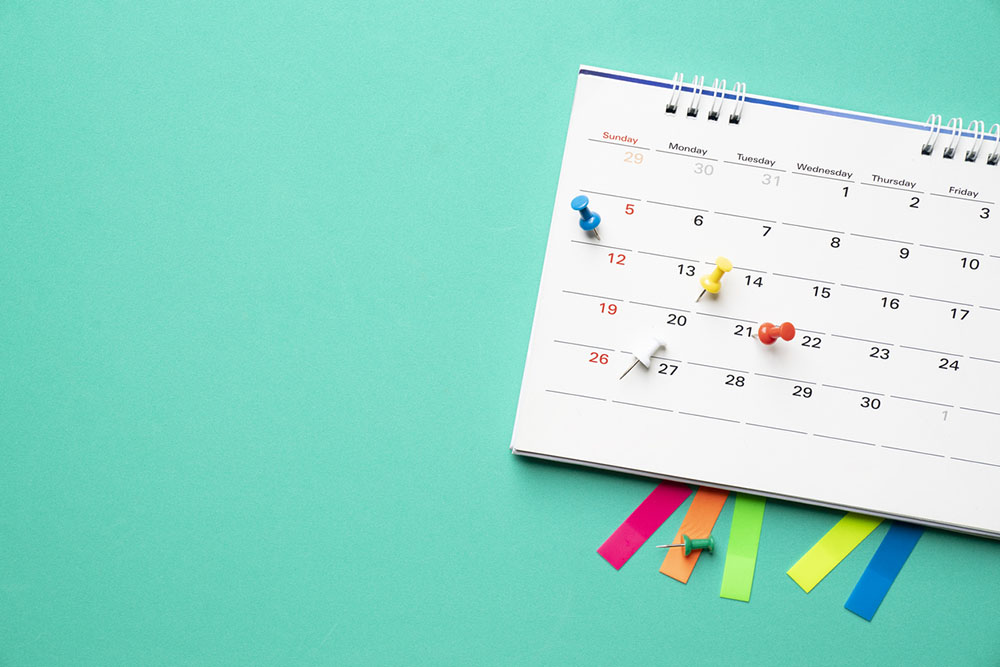
This transformation has been just three months of my life. Just 12 weeks out of 52 this year where I have made some sacrifices. And I have never felt better and happier about myself. I made a decision at the beginning of the transformation that for the next three months I was going to take this whole thing very seriously and it’s paid off.
I haven’t starved myself and I am still eating loads of my favourite foods, but I have said no to the things I know will interfere with my goals (like alcohol and McDonald’s and cheesecake and doughnuts and biscuits), it was hard at first but now that food isn’t even a big deal to me anymore.
So what do you want more – to be healthy? Or that cookie? Priorities.
#8 You aren’t eating enough protein
Nutritionist Emma stressed this at the beginning of the transformation and that I’d need to focus on eating protein, protein and umm…more protein.
That’s because protein is essential to the human body. Protein contains amino acids that are the building blocks of all our cells and our bodies can’t make these on their own.
Protein foods include all types of meat, poultry, eggs, dairy (yoghurt) and fish, but also vegetarian sources such as tofu and tempeh, lentils and pulses, beans and nuts.
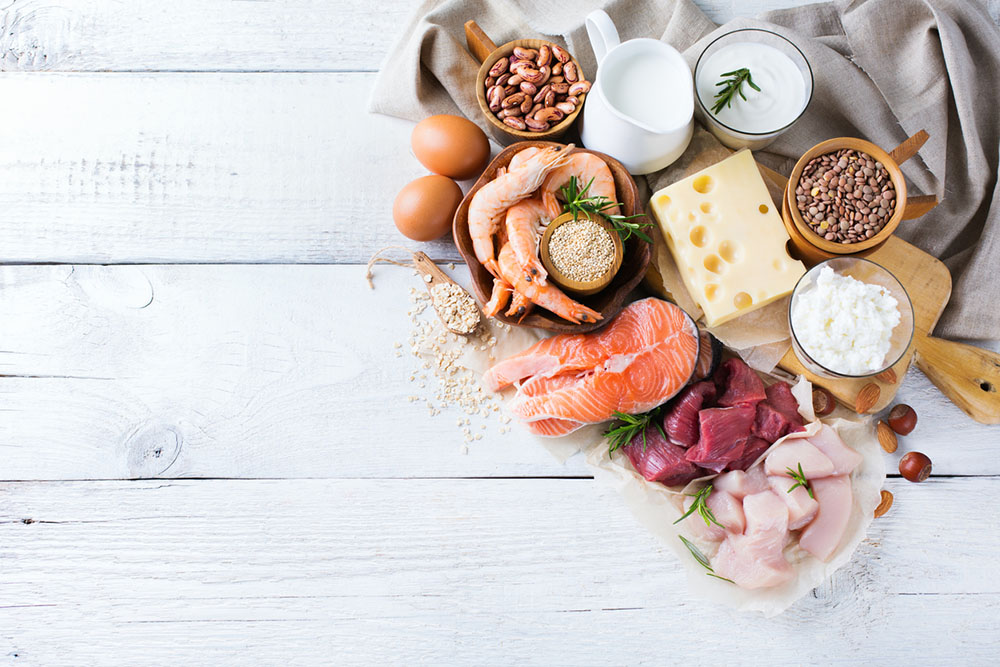
As I said above, Emma suggested I aim to eat 90 grams of protein (380 calories) on the days I am working out and 80 grams (330 calories) on the days I am not.
Protein helps the body to build lean muscle tissue and it gives the body shape, which is great when you’re training hard because it means you don’t get any muscle wasting, but instead are constantly fueling your muscles to shape and grow.
Another key benefit of protein at each meal is because it helps keep you fuller for longer. That means having protein at each meal and snack translates to fewer calories between eating opportunities.
‘Protein is the most satiating macronutrient and during a transformation you want a diet high in protein, that will keep you feeling fuller for longer,’ explains Emma. ‘Protein will also slow the release of energy to help curb energy slumps throughout the day’.
A randomised crossover study was performed on 40 men and 39 women, who ate diets of either 5%, 15%, or 30% of calories from protein. The participants who consumed 30% worth of calories from protein ended up eating an average of 575 fewer calories per day.
Put simply:
- Protein keeps you fuller for longer and therefore stops cravings
- Protein is crucial for muscle recovery and building
So like Emma said, you need to eat protein, protein and well, more protein.
#9 You’re only focusing on what the scales say
How often do you weigh yourself? Monthly, weekly, daily? Have you ever hopped on the scales two days in a row and been shocked that you managed to gain four pounds overnight? Have you then felt miserable and starved yourself the next day?
Well I have. And it’s made me give up and say what is the point, it’s obviously not working, and I end up back to square one.
It’s so easy to become obsessed with what the scales say, but here’s the good news, that number on the scales is only one measure of weight change. Weight is influenced by so many different factors, including hormones, fluid fluctuations and how much food is still in your system.
In fact, weight can fluctuate by up to four pounds (1.8 kg) throughout a day. Plus, oestrogen levels and other hormonal changes in women can lead to water retention, which occurs when excess fluids build up inside your body, reflected in scale weight.
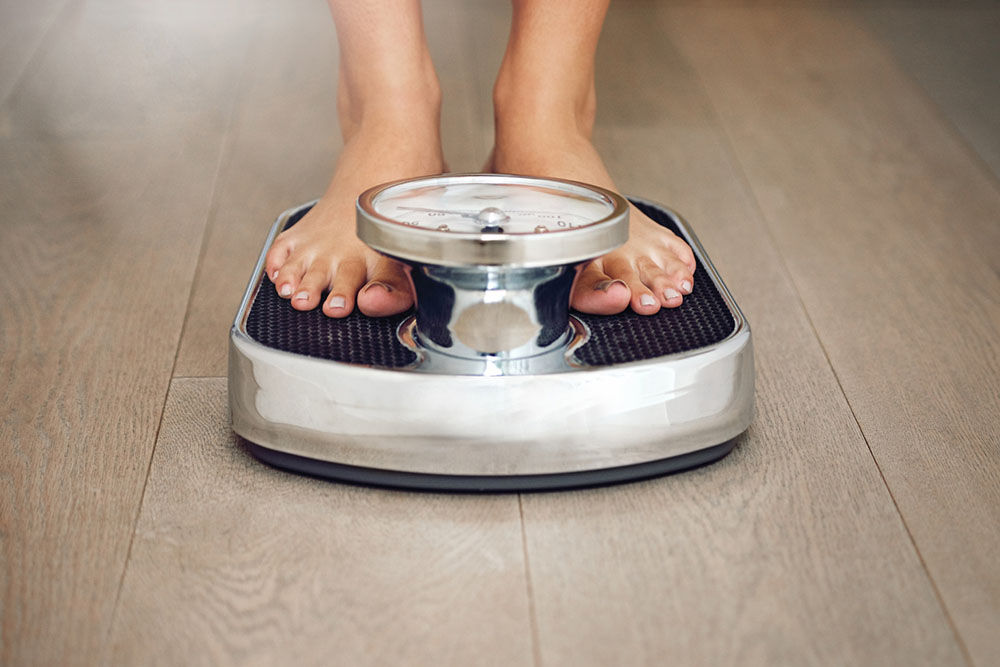
If the number on the scale isn’t moving, don’t panic. You may still be losing fat mass but just holding onto water. Plus, if you have been lifting heavy weights you have probably gained some muscle – which weighs twice as much as fat – so don’t get upset by what you see on the scales.
Take my measurements for example, between weeks four and five I weighed exactly the same but had still managed to lose 0.4 percent body fat. It’s not a lot I know but still it proves that whatever I did that week still didn’t affect my fat loss goals.
Also, week ten saw me gain a whole kilogram meaning I was back to weighing what I weighed in week six, but again my body fat percentage had still decreased and gone down to 21.1 percent.
So, please do not focus on what the scales say, it’s OK to be aware but they shouldn’t be your only way of tracking your weight. Try measuring your waist with a tape measure and taking monthly pictures of yourself instead.
Come back next week read Olivia’s final installment in her weight loss transformation journey with Mark Stanton and Emma Bardwell at Transition Zone.
Want to undergo a transformation yourself? Book a free 15 minute nutrition call with Emma Bardwell at Transition Zone to discuss your goals, expectations and what’s currently holding you back.
Follow Transition Zone on Instagram or see their website and latest newsletter for more information.
More Healthista Content:
11 healthy recipes these peanut butter obsessed influencers love
From exhaustion to muscle aches – 9 supplements to help you recover from exercise faster
7 signs of vitamin deficiency ruining your looks
Exhausted? 9 ways to beat burnout I learned from this Ibiza wellness retreat
Like this article? Sign up to our newsletter to get more articles like this delivered straight to your inbox.



